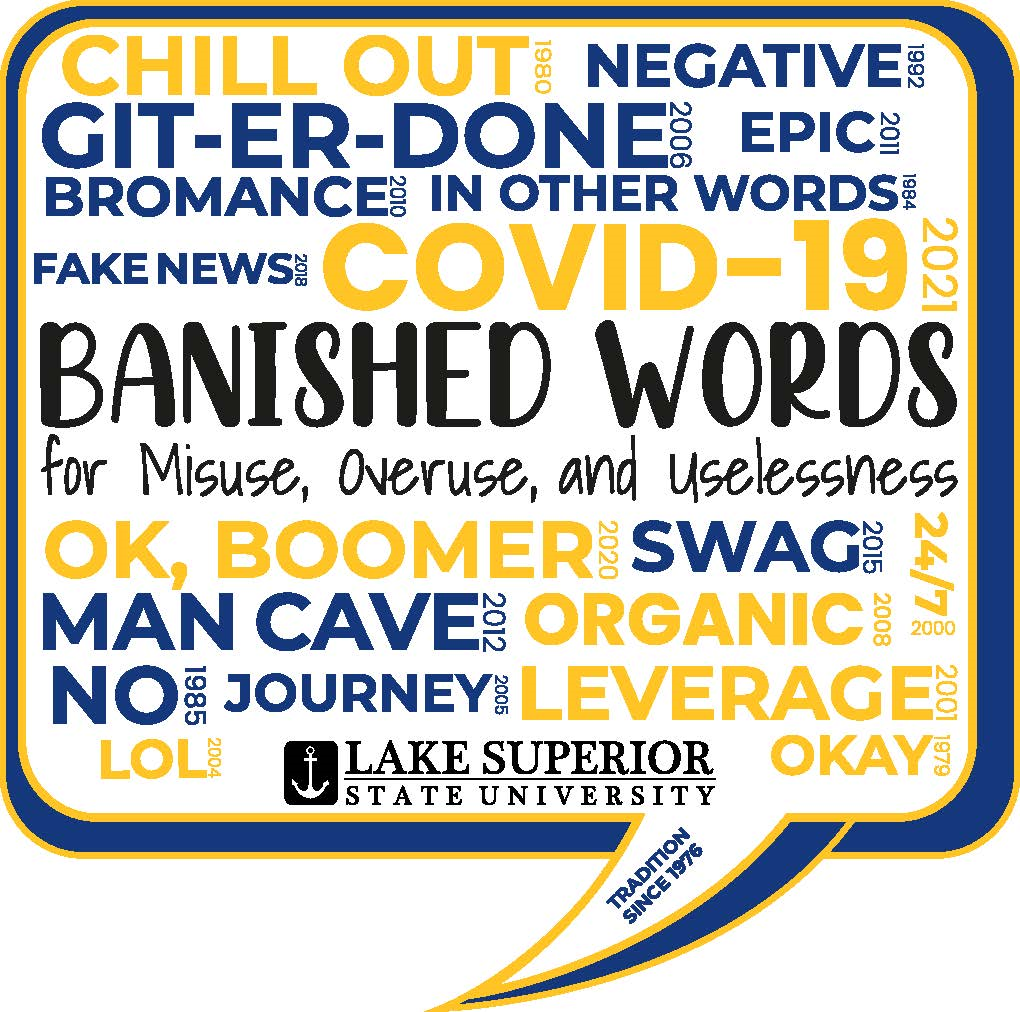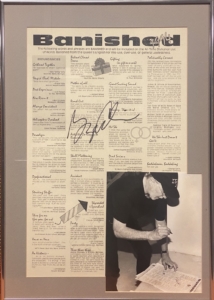Dec 12
Nov 22

Last year, people across the U.S. and around the world wearied of hearing and reading about COVID-19. What words and terms rate bad or excessive this year? One month remains to submit entries for Lake Superior State University’s annual tongue-in-cheek Banished Words List.
The deadline to submit entries for consideration for banishment for 2022 is 8 AM Eastern Standard Time on Nov. 30, 2021, at lssu.edu/banishedwords.
LSSU will announce results on Dec. 31, 2021, to start the New Year on the right foot, er, tongue.
Lake State has compiled its yearly mock-serious Banished Words List since 1976 to uphold, protect, and support excellence in language by encouraging avoidance of words and terms that are hackneyed, redundant, oxymoronic, clichéd, illogical, nonsensical—and otherwise ineffective, baffling, or irritating.
COVID-19 terminology monopolized submissions last year. Out of 1,450-plus nominations, upwards of 250 of the words and terms suggested for banishment for overuse, misuse, or uselessness pertained to the coronavirus pandemic. Seven of the 10 words and terms that LSSU banished for 2021 were about it. Ranked No. 1 to get rid of was what started the global crisis: “COVID-19” itself. Others included “social distancing,” “in an abundance of caution,” and “We’re all in this together.”
Over the decades, LSSU has received tens of thousands of nominations for the list, which now totals more than 1,000 entries. Examples of the winners (or should that be losers?) to make the yearly compilation: “detente,” “surely,” “classic,” and “bromance,” plus “wrap my head around,” “user friendly,” “at this point in time,” and “viable alternative.” The Banished Words List has become such a cultural phenomenon that comedian George Carlin submitted an entry that made the annals in 1994: “baddaboom, baddabing.”

“You’d better believe that every year we look forward to what sets off grammarians, philosophers, pundits, lovers of language, and haters of miscommunication in the public interest, if you will,” said LSSU President Dr. Rodney S. Hanley. “By the way, ‘You’d better believe’ made the list in 1978, ‘in the public interest’ in 1980, and ‘if you will’ in both 1984 and 1991, to be ‘perfectly candid’—chosen in 1977. ‘So,’ a dual entry from 1999 and 2016, I’d better stop talking.”